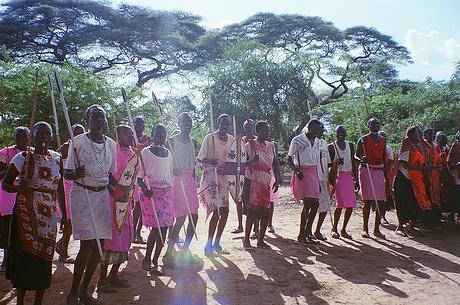Landmark ruling says Kenya tribe’s eviction for nature reserve illegal
February 19, 2010
 © Minority Rights Group International (MRG)
© Minority Rights Group International (MRG)This page was last updated in 2010 and may contain language which is now outdated.
The African Commission on Human and Peoples’ Rights has recommended that the Endorois tribe in Kenya be given back its land, after they were evicted from it to make way for a nature reserve in the 1970s.
Kipsan Kipkazi, of the Endorois Welfare Council, said, ‘We are delighted that the African Commission has recognised the wrong that was done decades ago.’ The ruling comes after a legal battle between the government of Kenya and the Endorois tribe, supported by Minority Rights Group and the Centre for Minority Rights Development in Kenya.
The Endorois are a semi-nomadic tribe who herded cattle and goats through Kenya’s Rift Valley for centuries. In the early 1970s they were forced from their land, to create the Lake Bogoria National Reserve. The Reserve is now a UNESCO World Heritage Site.
Indigenous land rights are not widely recognised in Africa, and this is the first time that the African Commission has upheld these rights. The ruling recommends that the Endorois be granted ‘unrestricted access’ to Lake Bogoria, royalties from existing economic activities in the area (mostly tourism), and the right of ownership and full restitution of their ancestral land.
In another part of Kenya, the Ogiek tribe are seeking to ensure their rights over the Mau forest are not ignored as the government attempts to deal with the severe environmental degradation caused by deforestation and settlement by outsiders. Kenya’s Prime Minister Raila Odinga has said no Ogiek will be evicted, and the Ogiek are cautiously hopeful that he will keep his word.

